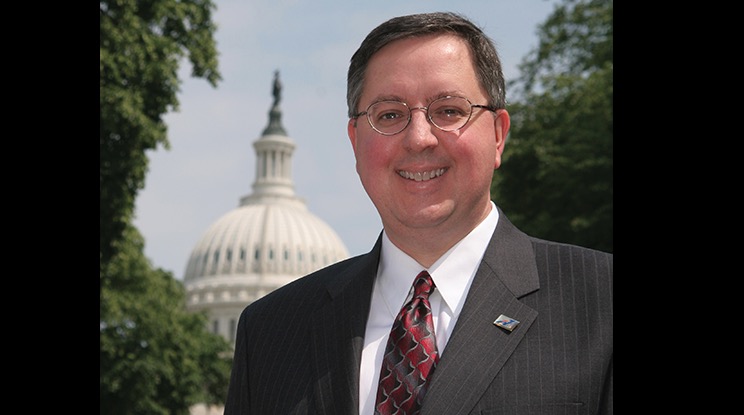Small Operators Have Big Voice in D.C.

The smarter way to stay on top of broadcasting and cable industry. Sign up below
You are now subscribed
Your newsletter sign-up was successful
Independent cable/broadband operators are gathering with technology and content companies in Indianapolis this week for the annual Independent Show, courtesy of the American Cable Association and the National Cable Television Cooperative.
It looks to be an upbeat event for ACA president Matt Polka, who is confident about several prospects under the new Republican FCC. He feels particularly good about a potential rollback of Title II, but concedes it will be an uphill climb on other issues. That won’t stop ACA from fighting the good fight for its smaller and midsized cable operator members.
Polka talked with B&C Washington bureau chief John Eggerton about the challenges and opportunities for the association in making its case in Washington. An edited transcript follows.
Talk a little bit about the Independent Show and what you hope attendees come away with, besides tchotchkes.
Yes, the never-ending pursuit of the best in cable tchotchkes, though things have changed over the years.
It is an interesting time to come together as independent cable operators, given the changes in our industry — all the consolidation that is taking place, the rapid technology changes, as well as what we’re enduring in Washington. Despite that, I think we hope that members will come away from the Independent Show encouraged and enthused because today their path ahead is a bit clearer.
How so?
The smarter way to stay on top of broadcasting and cable industry. Sign up below
We have support at the FCC from releasing [internet-service providers] from onerous Title II [network neutrality] regulation and really clearing the deck for greater business innovation that will really benefit their customers and their communities.
So, by way of big pictures, we want to tell our members to keep on, but be encouraged because they control the pathway to what consumers and the industry want most, and that is broadband in their markets.
In the ACA’s comments on network neutrality, you said you opposed Title II and were skeptical about the need for any ex ante [before the fact] rules, but one argument for the rules is that, without them, cable ISPs will be able to discourage over-the-top competition, which some indie programmers say is their best shot at getting distribution, given the size of the distributors. Is there merit to that argument?
I don’t know whether we are saying we would not support any types of rules. I think there was a question about the FCC’s authority that chairman [Ajit] Pai is looking into. But we have consistently supported the application of net neutrality principles under former chairmen Michael Powell and Kevin Martin that provided for no blocking, no discrimination, no paid prioritization, transparency, privacy.
I don’t see that as being an issue with our members wanting to restrict how their customers obtain content, which they are doing today through Netflix and Hulu and CBS All Access and HBO Now. So, I don’t think it is part of our DNA to deny anywhere that our customers lawfully want to go. I think what concerns our members most is the threats that we perceived under Title II from the FCC to further change that internet marketplace with possible imposition of rate regulation or the use of a good conduct standard that could be manipulated by the FCC in whatever way it wanted, and the real impact on the availability of financing and capital for further expansion of our members’ networks. I mean, they are the pipe. Our members don’t have any incentive to take away choices from consumers.
What do you think the chances are of bipartisan legislation clarifying the FCC’s network neutrality regulatory authority? Might Democrats be ready to come to the table, or is that too big an ask given the political climate?
I think on an issue this big it would uphill, but, boy, I sure would like to see it.
Right now, we’re in game three of the tennis match where the regulatory ball is batted back and forth between regulation and deregulation, and in the next presidential election are we going to bounce back to heavy regulation?
That is not good for business and that’s not good for consumers. And ultimately, we would hope that Congress could craft a solution based on net neutrality principles. I just think in this environment that is really hard to do. That being said, I do think there are members on both sides who would like to move forward with discussions on how Congress can intervene and maybe create a path that would allow for consumer protection as well as network innovation, but it is just going to be an uphill battle.
Contributing editor John Eggerton has been an editor and/or writer on media regulation, legislation and policy for over four decades, including covering the FCC, FTC, Congress, the major media trade associations, and the federal courts. In addition to Multichannel News and Broadcasting + Cable, his work has appeared in Radio World, TV Technology, TV Fax, This Week in Consumer Electronics, Variety and the Encyclopedia Britannica.

